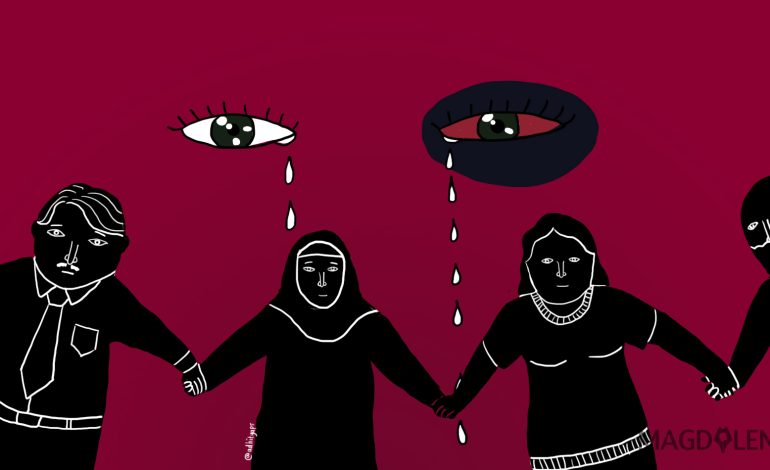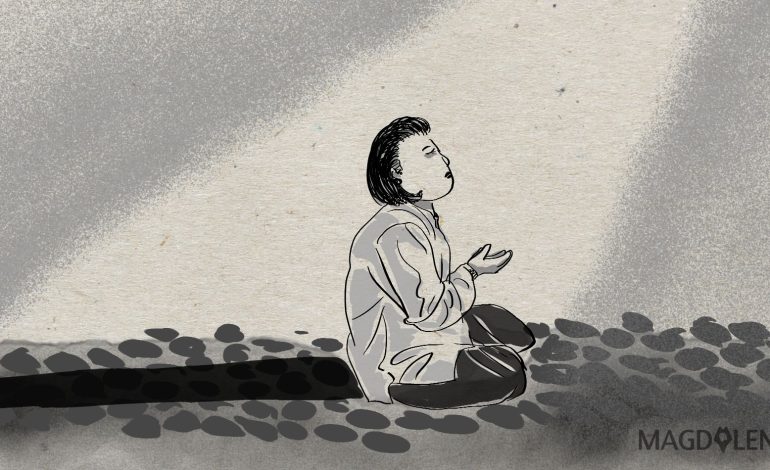Media Should Help Instead of Worsen Sexual Violence Problem

The recent case of gang rape and murder of 14 year-old “Y” showed media coverage on sexual violence urgently needs improvement.
Y’s senseless death barely made national news in the beginning – the case was only reported one month later by local newspaper. It created a ripple in social media only after a few activists found the buried article days later and began a campaign to support Y and raise public awareness on the situation. When the case finally made headlines, it further revealed how the media remain sexist, ignorant and insensitive toward the victim and her family in its coverage.
“Mass media is the portrait of society. Our society is mostly patriarchal and is dominated by male values, and it is projected in the media report,” said Alex Junaidi, a senior journalist at The Jakarta Post and Director of the Association of Journalists for Diversity (Sejuk).
“Women are still seen as property and are exploited. They are valued for their bodies instead of their mind,” he said.
Alex was one of the speakers during a discussion on May 11 with the topic “Media and Civil Society Roles to Stop Sexual Violence” at @america, Pacific Place, Jakarta. The discussion was part of a seven-month long campaign #MulaiBicara or #TalkAboutIt held by Lentera Indonesia and Magdalene, to raise public awareness on the problem of sexual violence in Indonesia.
Alex said the fact that male journalists still outnumber female ones also contributed to the bias in reporting sexual violence cases.
“Media still assert certain stereotypes for women: the decent ones are those who can educate their children, career women who can spare time for their families, and so on. While bad women are those who go out at night, widows, etcetera,” he said.
Media have no qualms about using sexist and judgmental language, as well as using euphemism that depict a rapist as powerful and the victim as someone who is tainted or has lost her honor.
Some media reports publish articles with sentences like: “Fortunately, the rape perpetrator is willing to marry the victim….” Some sexual violence news stories have headlines like this one: “Moving, rapist marries his victim at local police’s mosque.”
“Worse still, they put the complete address of the victims in the report. This is a violation of Article 5 of the Journalist’s Code of Ethics, which prohibits journalists from revealing the identity of sexual violence victims,” said Alex.
Media can actually serve an important role in the efforts to reduce the pervasive problem of sexual violence and rape culture in Indonesian society.
“Media is an educational tool, opinion leader, and agent of information. It can shape people’s perspective and it is an important hub for people to interact,” said Wulan Danoekoesoemo, Executive Director of Lentera Indonesia, a support group for sexual violence survivors, during the discussion.
The media should help instead of perpetuating the grave situation regarding sexual violence in Indonesia, she said.
Alex adds that the media should not be a static mirror that only captures facts as they are, such as in cases of sexual violence, which can trigger further crimes. Instead it must serve as “a dynamic mirror that can transform the ugly façade of society to become more respectful of women, thus preventing violence against them.”
Every two hours, three women experience sexual violence in Indonesia, according to the National Commission on Violence Against Women (Komnas Perempuan). Most of the perpetrators are those intimately related to the victims or have access to them.
Unfortunately, the persisting focus on sexual violence often puts the burden of blame on the women, making many survivors reluctant to report their sexual assaults and allowing perpetrators to walk free.
The culture of silence surrounding sexual violence is “deafening”, enabling a climate of impunity and making it hard for survivors to get justice. This is the drive behind the seven month-long campaign conducted by Lentera Indonesia and Magdalene.
“We want the society to at least start talking about sexual violence, through the hashtag #MulaiBicara,” Wulan said.
Kartika Jahja, an independent musician and women’s rights activist from Kolektif Betina and Bersama Project, said civil society could do more to prevent sexual violence against women.
“People can start by understanding the roots of sexual violence and all gender-based violence, which is gender inequality,” Kartika said.
“Once we open our eyes to that reality, we will begin to see gender-based injustice everywhere. Then we can try to tackle the issue within our own lives. Teachers can do it by applying gender equality in their classrooms, mothers by teaching their sons about respecting women as equals, businesswomen/men by enforcing company policies that are non-discriminative, media by producing content with better gender perspective. It takes a collective effort,” she added.
Find out about the link between sexual violence and poverty and follow @heradiani on Twitter.
To continue the conversation and support the campaign against sexual violence, visit campaign.com/mulaibicara.





















